Inaugural Lecture of Patrick Huen Wing Ming Professorship of Systems Engineering and Engineering Management by Professor Helen Meng (只提供英文版)
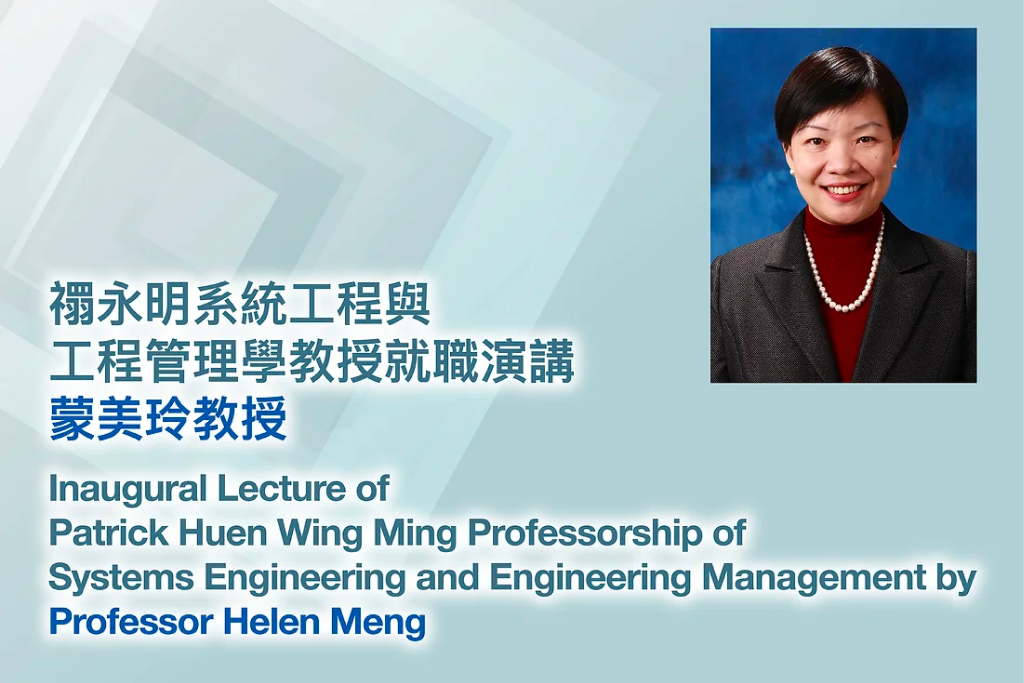
Professor Helen Meng gave an inaugural lecture as the Patrick Huen Wing Ming Professor of Systems Engineering and Engineering Management on Dec 7, 2021 (4pm). Details can be found at:
https://www.cpr.cuhk.edu.hk/en/event/inaugurallecturehelenmeng/
IEEE William E. Sayle II Award (只提供英文版)
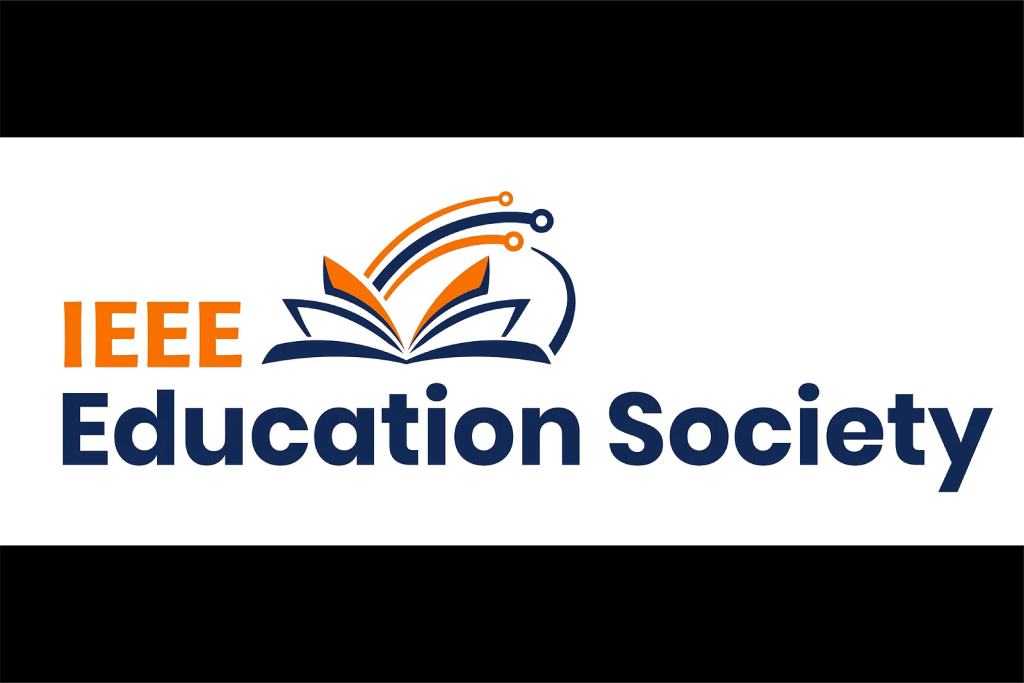
Professor Rosanna Chan has been awarded the IEEE William E. Sayle II Award for Achievement in Education in recognition of her contributions to the field of learning technologies for special education needs.
Source from:
https://ieee-edusociety.org/awards/ieee-william-e-sayle-ii-award-achievement-education
SciTech Challenge 2021 (只提供英文版)
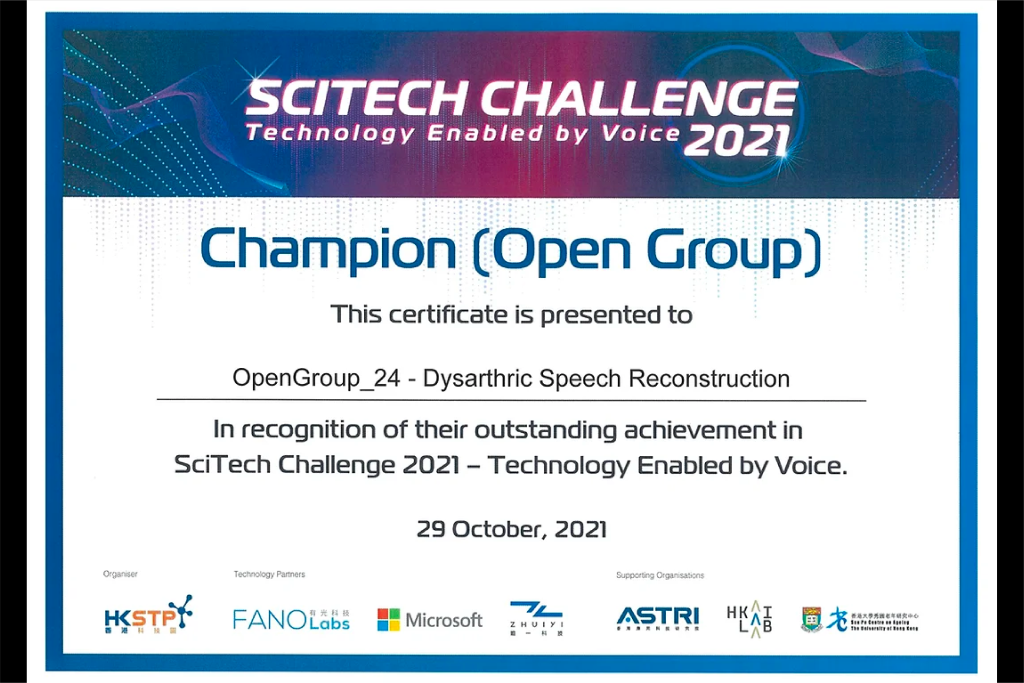
CPII’s team in spoken language research participated in the SciTech Challenge 2021 and won the championship with the entry entitled “Dysarthric Speech Reconstruction”. The goal of our work is to leverage AI-enabled speech technologies to help people with difficulty in pronouncing words due to a neuromotor disorder — a condition known as dysarthria. Dysarthria has a number of causes, including stroke, Parkinsons, brain injuries, etc. The individual needs to devote much effort to speaking and yet dysarthric speech often has reduced intelligibility for listeners. In order to overcome reduced communicative ability due to the speech impairment, our team proposed a state-of-the-art neural approach to automatically reconstruct dysarthric speech to become normal speech. This work is not only novel from the technological perspective, but it can potentially offer great enhancements towards social inclusion for dysarthric individuals. The project aligns well with the commitment of our centre to advance AI-enabled perceptual and interactive technologies for societal benefits.
AI for Cognitive Health (只提供英文版)
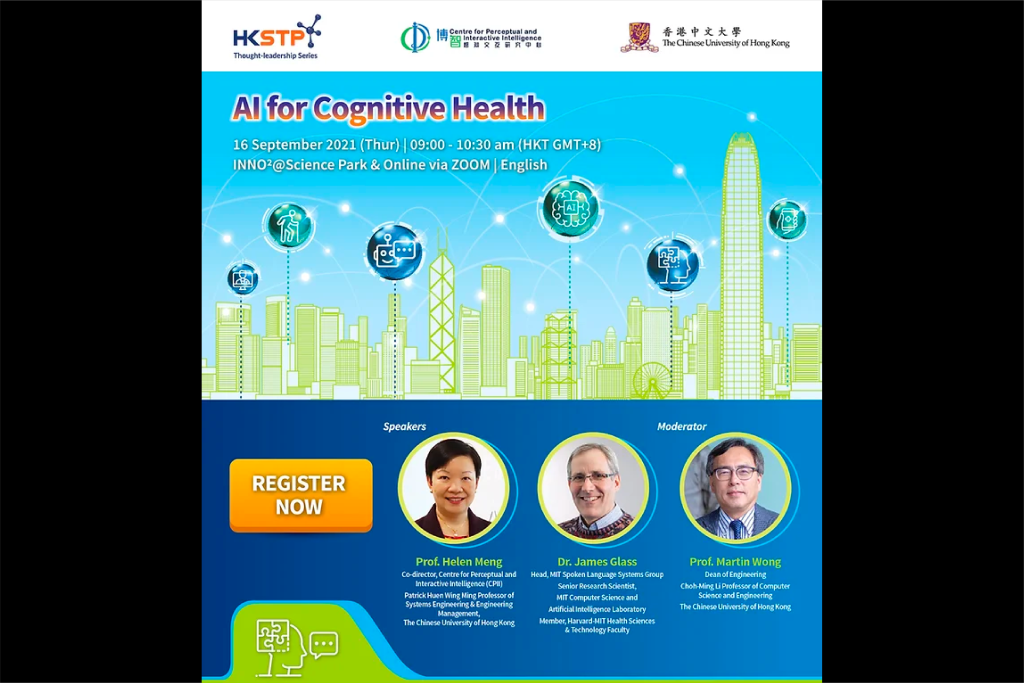
Population ageing is a global concern. According to the World Health Organization (WHO), the number of people aged over 60 will nearly double to make up 22% of the world’s population by 2050, while the number of Hong Kong people aged over 65 will rise to make up 35% of the local population. Neurocognitive disorders (NCD), which include various types of dementia, are particularly prominent in elderly people. As spoken language can be easily captured (even remotely) and enables sensitive cognitive assessments, it can be used for early NCD diagnoses.
In this event, the Dr. James Glass from MIT and Prof Helen Meng from CPII presented the latest Artificial Intelligence (AI)-driven research that automatically extracts spoken language biomarkers for early detection of NCD. This research aligns well with WHO’s plan of making dementia a public health and social care priority at national and international levels.
2022 Claude E. Shannon Award (只提供英文版)
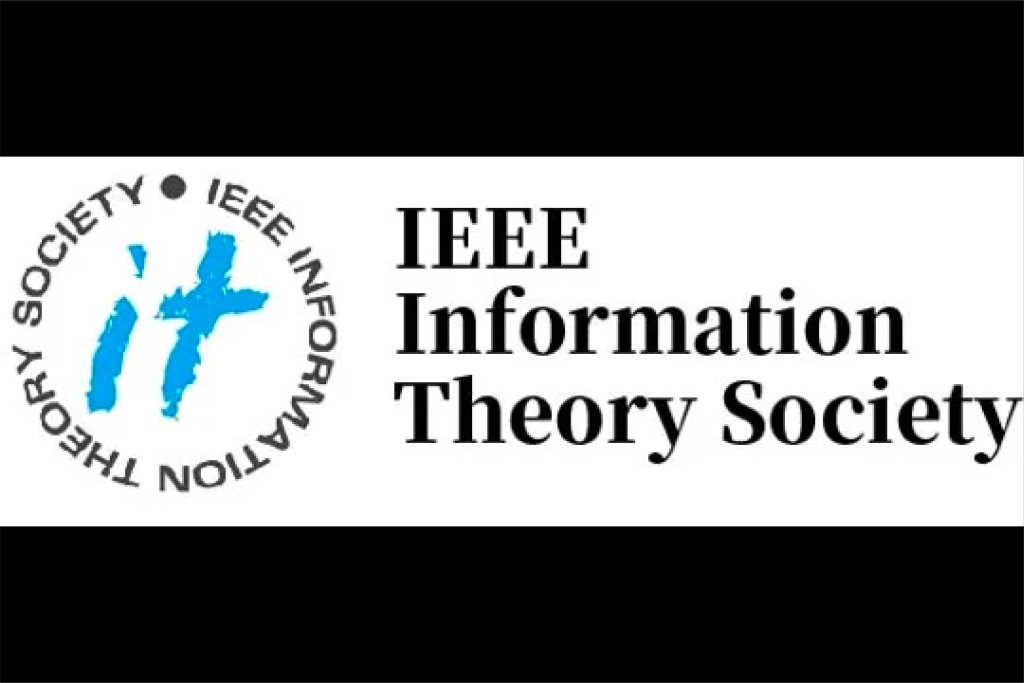
IEEE Information Theory Society announced that Professor Raymond Yeung will be awarded the 2022 Claude E. Shannon Award for consistent and profound contributions to the field of information theory.
The Claude E. Shannon Award is the highest honor from the IEEE Information Theory Society. The award recognizes consistent and profound contributions to the field of information theory.
Source from:
https://www.itsoc.org/honors/claude-e-shannon-award
https://www.ie.cuhk.edu.hk/lnews/21-07-20.shtml
https://www.itsoc.org/news/yeung-named-2022-claude-e-shannon-award-winner
IEEE Richard W. Hamming Medal

Professor Raymond Yeung has been awarded the IEEE Richard W. Hamming Medal in recognition of his fundamental contributions to information theory and pioneering network coding and its applications.
Source from:
https://ieeetv.ieee.org/channels/ieee_awards/2021-ieee-honors-ieee-richard-w-hamming-medal-raymond-w-yeung
